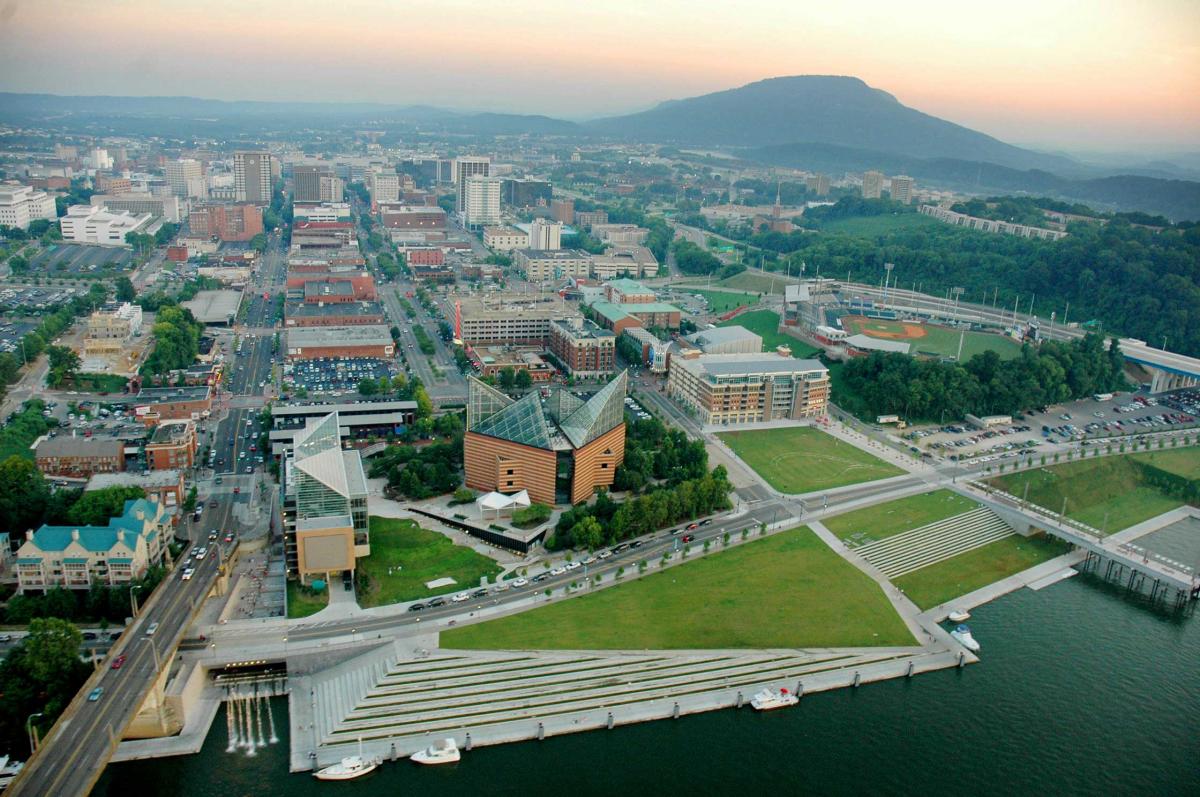
Highways to Boulevards
This year's Transportation Summit focuses on the revitalization of urban neighborhoods disrupted by limited-access highways and the local campaigns to transform these disruptive arteries into surface streets and boulevards. In the 20th Century, the American era of highway-building created sprawling freeways that cut huge swaths through our cities. Too often vibrant, diverse, and functioning neighborhoods were destroyed or isolated by their construction, devastating communities and economies alike. Today, many of these urban freeways are reaching the end of their lifespans—and their continuing purpose and worth is being called into question.
The Project for Transportation Reform has chosen this crucial moment to open a dialogue between leading professionals in the field of transportation and the community members seeking to transform the freeways that divide their neighborhoods. As its objective, this Transportation Summit aims to equip both current and future campaigns with a toolkit to repair the damage caused by inner city highways and to reintegrate neighborhoods back into cities and towns across North America.
To this end, the 2018 Transportation Summit will feature sessions that cover:
- Designing and planning alternatives to highways.
- Campaign communication and messaging.
- Collaboration with local and state governments.
- Economic incentives of highway replacement.
- Funding highway replacement.
Check out the draft schedule for the 2018 Transportation Summit below. Some changes and substitutions may be made leading up to the Summit, but the schedule below reflects the most up-to-date information. Other than the tours, all events take place at the Preservation Resource Center, located at 923 Tchoupitoulas St, New Orleans, LA 70130.
Saturday | September 15
TOUR: NEW ORLEANS' TREMÉ NEIGHBORHOOD AND THE CLAIBORNE EXPRESSWAY
4:00 - 6:00 PM
Experience firsthand the Claiborne Corridor and Tremé neighborhood in New Orleans, a city neighborhood split by the six-lane, elevated Claiborne Expressway (I-10). Led by Amy Stelly, urban planner, designer, and campaign leader, this tour will begin on Canal Street to first consider successful models for boulevards in New Orleans before looking at the potential to redevelop the elevated expressway back into the vibrant avenue it once was. Throughout the tour, we will tackle the very real issues of gentrification and displacement that have spurred neighborhood opposition and discuss how to ensure that the economic value unlocked by taking down an elevated expressway is channeled to serve the members of the current community.
Please note that the tour departs from Backatown Coffee Parlour at 301 Basin Street.
Sunday | September 16
REGISTRATION
8:00 – 8:30 AM
WELCOME, PURPOSE, AND INTRODUCTION
8:30 – 9:00 AM
Speakers:
Leslie Creane, Program Director, Congress for the New Urbanism
Patrick Kennedy, Founder, A New Dallas
HIGHWAYS TO BOULEVARDS: CAMPAIGN STORIES
9:00 – 10:45 AM
The organizers of local campaigns to revitalize urban neighborhoods disrupted by limited-access highways and transform these disruptive arteries into surface boulevards present their successes and current efforts.
Speakers:
Patrick Kennedy, Founder, A New Dallas (I-345, Dallas TX)
Heyden Black Walker, Project Manager, Reconnect Austin (I-35, Austin TX)
Brian Dold, Director of Planning & Advocacy, Buffalo Olmsted Parks Conservancy (Scajacuada Expressway, Buffalo NY)
Lisa Saenz, Community Connector, Sun Valley Homes and Dan Shah, Director, West Colfax Business Improvement District (Route 70 Colfax/Federal Interchange, Denver CO)
Brian Stokle, Transportation Planner and Founding Member, ConnectOAKLAND (I-980 Spur, Oakland CA)
Amy Stelly, Designer & Planner, Claiborne Avenue Alliance (Claiborne Expressway (I-10), New Orleans, LA)
Stacy Thompson, Executive Director, LivableStreets Alliance (McGrath Highway, Somerville MA)
Brad Evans, Campaign Creator and Coordinator, Ditch the Ditch (I-70, Denver CO)
Brian Boland and Chris Meyer, Project Associate, Hub+Weber (Brent Spence Bridge (I-75), Cincinnati OH and Covington KY)
Ari Ofsevit, Campaign Leader, LivableStreets Alliance (I-90 Allston Interchange, Boston MA)
BREAK
10:45 – 11:00 AM
SESSION 1: THE FUNDAMENTAL TRANSPORTATION ARGUMENT: TRAFFIC AND MODELING FOR HIGHWAY TRANSFORMATION
11:00 AM – 12:00 PM
Speakers:
Norman Marshall, President, Smart Mobility Inc.
Lisa Saenz, Community Connector, Sun Valley Homes
Moderator:
Rock Miller, President, Institute of Transportation Engineers (2012)
A perceived negative impact on traffic is one of the most common arguments encountered against the conversion of a highway into surface streets, avenues, and boulevards. However, in many cases, surface streets integrated into a street network are demonstrably able to accommodate similar vehicle capacities as freeways, while at the same time providing improved transit options. In this session, we discuss how to make effective traffic arguments for highway transformation and offer a toolkit for its advocates to more confidently approach traffic impact analyses.
This session consists of one 15-minute talk by a leading practitioner and one 15-minute talk by a campaign organizer, followed by 30 minutes of open conversation and discussion around the topic.
LUNCH AT THE PRESERVATION RESOURCE CENTER
12:00 PM - 1:00 PM
SESSION 2: THE ECONOMICS OF HIGHWAY TRANSFORMATION: INCENTIVES AND FUNDING
1:00 – 2:00 PM
Speakers:
Dan Shah, Director, West Colfax Business Improvement District
Tom Radulovich, Executive Director, Livable City
Moderator:
Peter Park, Director/Owner of Peter J. Park, LLC
The maintenance of elevated highways is expensive. Many of these urban highways are approaching the end of their lifespan and have become broken liabilities. This presents a prime opportunity to redevelop elevated expressways into socially and economically valuable places. In this session, we discuss the economic benefits of highway transformation and how they can be leveraged to serve members of the current community. While not nearly as expensive as highway replacement, highway transformation still requires sources of funding, which we will also discuss as part of this session.
This session consists of one 15-minute talk by a leading practitioner and one 15-minute talk by a campaign organizer, followed by 30 minutes of open conversation and discussion around the topic.
SESSION 3: THE POLITICS OF HIGHWAY TRANSFORMATION
2:00 – 3:00 PM
Speakers:
John Norquist, Mayor of Milwaukee (1988-2004)
Brian Stokle, Transportation Planner and Founding Member, ConnectOAKLAND
Moderator:
Stacy Thompson, Executive Director, LivableStreets Alliance
Highway transformation is a collaborative effort. Grassroots campaigns start with community members, but eventually collaborate with local and state officials in order to achieve their vision. In this session, we discuss how to approach and gain the support of city councils, mayors, and the elected state officials who bring political capital to a campaign and help make highway transformation a reality.
This session consists of one 15-minute talk by a leading practitioner and one 15-minute talk by a campaign organizer, followed by 30 minutes of open conversation and discussion around the topic.
BREAK
3:00 – 3:15 PM
SESSION 4: COMMUNICATION AND MESSAGING FOR HIGHWAY TRANSFORMATION
3:15 – 4:15 PM
Speakers:
David Dixon, Planning and Urban Design Leader, Stantec's Urban Places
Ari Ofsevit, Campaign Leader, LivableStreets Alliance
Moderator:
Patrick Kennedy, Founder, A New Dallas
It takes time to change perceptions on traffic, vehicle movement, and public infrastructure. And more often than not, it takes a vision. In this session, we discuss the communication and messaging strategies that can help convey this vision and gather support within the community to increase the conversion rate of highways to boulevards.
This session consists of one 15-minute talk by a leading practitioner and one 15-minute talk by a campaign organizer, followed by 30 minutes of open conversation and discussion around the topic.
THE FUTURE OF HIGHWAY TRANSFORMATION: NEXT STEPS
4:15 – 5:45 PM
Moderators:
Ian Lockwood, Livable Transportation Engineer, Toole Design Group
Marcy McInelly, President, Urbsworks, Inc
In this facilitated discussion, attendees will decide how best to capitalize upon the summit's outcomes and build resources for both current and future highway transformation campaigns.
HAPPY HOUR AT THE PRESERVATION RESOURCE CENTER
5:45 – 7:00 PM
Monday | September 17
TOUR: NEW ORLEANS' TREMÉ NEIGHBORHOOD AND THE CLAIBORNE EXPRESSWAY
8:00 - 10:00 AM
Experience firsthand the Claiborne Corridor and Tremé neighborhood in New Orleans, a city neighborhood split by the six-lane, elevated Claiborne Expressway (I-10). Led by Amy Stelly, urban planner, designer, and campaign leader, and David Dixon, urban planner and designer, this tour will begin on Canal Street to first consider successful models for boulevards in New Orleans before looking at the potential to redevelop the elevated expressway back into the vibrant avenue it once was. Throughout the tour, we will tackle the very real issues of gentrification and displacement that have spurred neighborhood opposition and discuss how to ensure that the economic value unlocked by taking down an elevated expressway is channeled to serve the members of the current community.
Please note that the tour departs from Backatown Coffee Parlour at 301 Basin Street.
LEADERSHIP MEETING
10:30 AM – 1:30 PM
The Project for Transportation Reform meets to decided its agenda for the next 12-18 months.
Presenters:
Scott Bernstein, Founder, Center for Neighborhood Technology
Larry Gould, Principal, Nelson\Nygaard
Rick Hall, President, Hall Planning & Engineering, Inc.
Drusilla van Hengel, Principal, Nelson\Nygaard
David Dixon, Planning and Urban Design Leader, Stantec's Urban Places and Patrick Siegman, Principal, Siegman & Associates
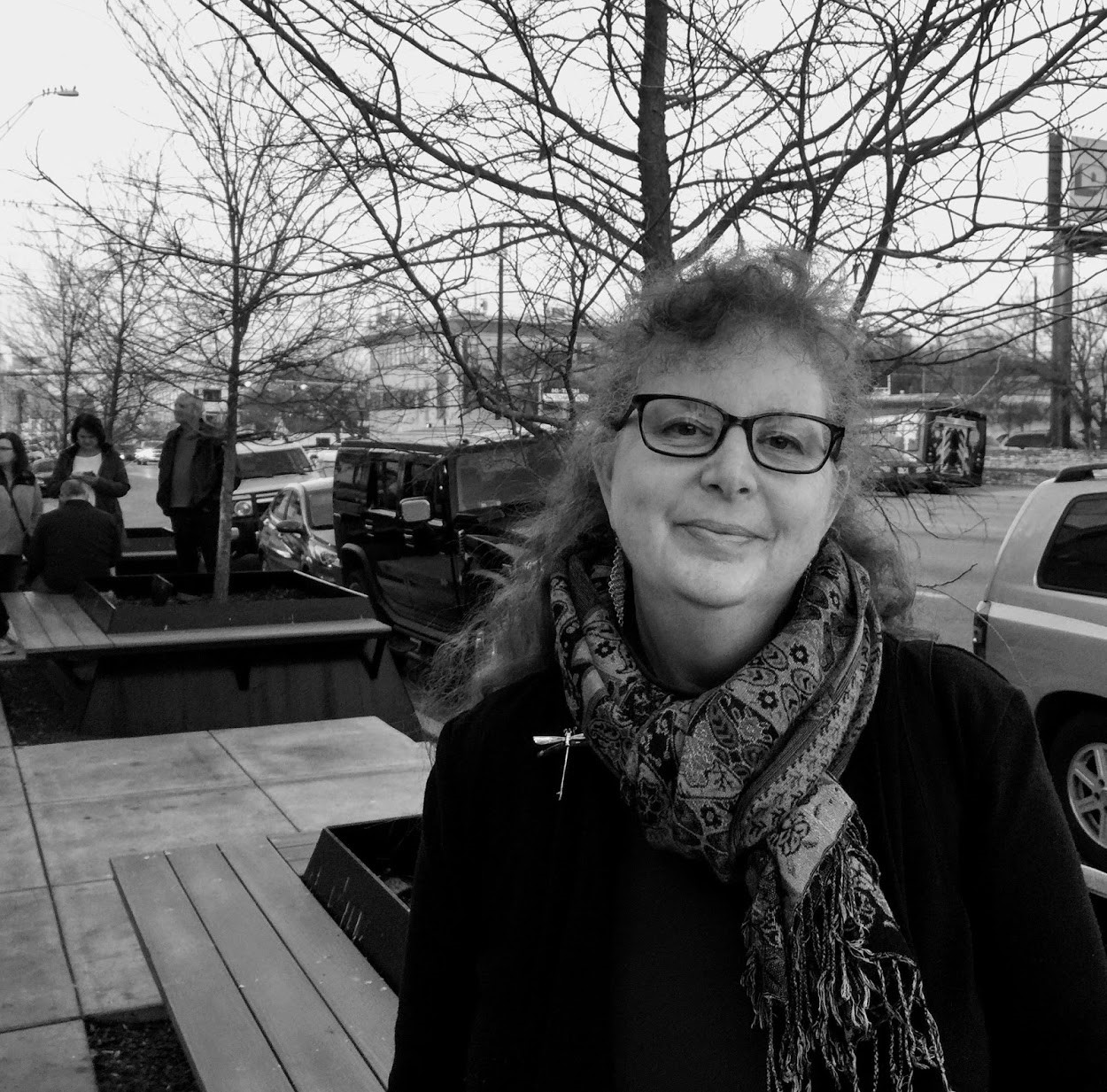 |
Heyden Black WalkerHeyden Black Walker, CNU-A, is an urban planner with Black + Vernooy, former teacher, and mother of two young adults in Austin, Texas. She co-founded Reconnect Austin, a community-based call to lower and cover the main lanes of I-35, creating a vision for a multimodal corridor that reconnects communities and builds value. Heyden holds a Masters in Community in Regional Planning from UT-Austin and serves on the City of Austin Pedestrian Advisory Council, Multimodal Community Advisory Committee, and Bond Corridor Focus Group. She also serves on the boards of directors for the Congress for the New Urbanism – Central Texas Chapter; VisionZeroATX; and Walk Austin. Heyden is a member of the Statewide Pedestrian Safety Coalition and is a 2016 Fellow of the National Walking College. |
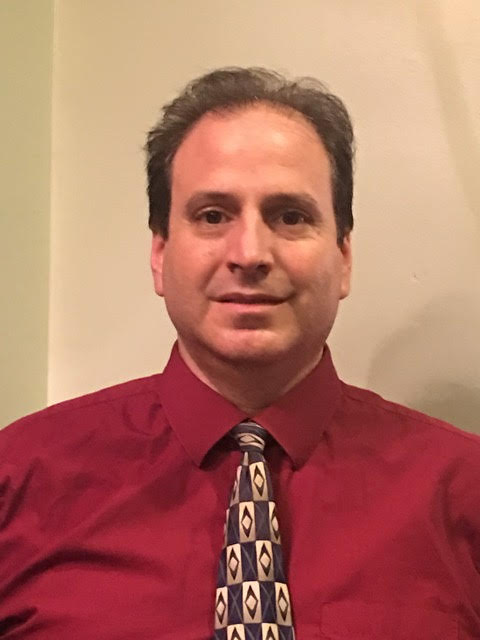 |
Brian BolandBrian is a founding member of the CNU Midwest Chapter and is currently working on a Masters Degree in Urban Sustainability and Resilience at Xavier University. Brian has been involved in re-development of properties in the Cincinnati and Northern Kentucky for more than 20 years. Last year Brian and his wife received a Duke Energy Redevelopment grant for their Brooklyn Flats project in Dayton, Kentucky, a suburb of Cincinnati. Brian also serves on several boards and is one of the committee members on transportation for the Cincinnati CNU Midwest sub-chapter, which covers efforts against the expansion of the Brent Spence Bridge (I-71/75). |
David DixonDavid leads planning and urban design for Stantec’s Urban Places, an interdisciplinary initiative that integrates urban disciplines to help communities benefit from the accelerating pace of demographic, economic, and technological change. The American Institute of Architects (AIA) summed up David’s career with its highest honor for achievement in the public sphere, the Thomas Jefferson Medal and Residential Architecture named him to their Hall of Fame as “the person we call when we have questions about cities.” CNU has recognized his work with more than a dozen Charter Awards. The American Planning Association (APA) honored New Orleans’ post-Katrina Master Plan, which David led, with its Hard-Won Victory Award. David is proud of initiating a national dialogue about the essential role “walkable density” plays in unlocking greater urban opportunity and fulfilling our shared responsibility to make communities more livable, equitable and resilient—including strategies to ensure that the advent of autonomous mobility promotes these core qualities. He walks his talk—working closely with his Urban Places colleagues to plan for more than $10 billion of investment in dense, lively, walkable urban districts in cities and suburbs alike. David is the co-author of Urban Design for and Urban Century (Wiley, 2010) and co-editor of Suburban Remix: creating the next generation of urban places (Island Press, 2018). |
|
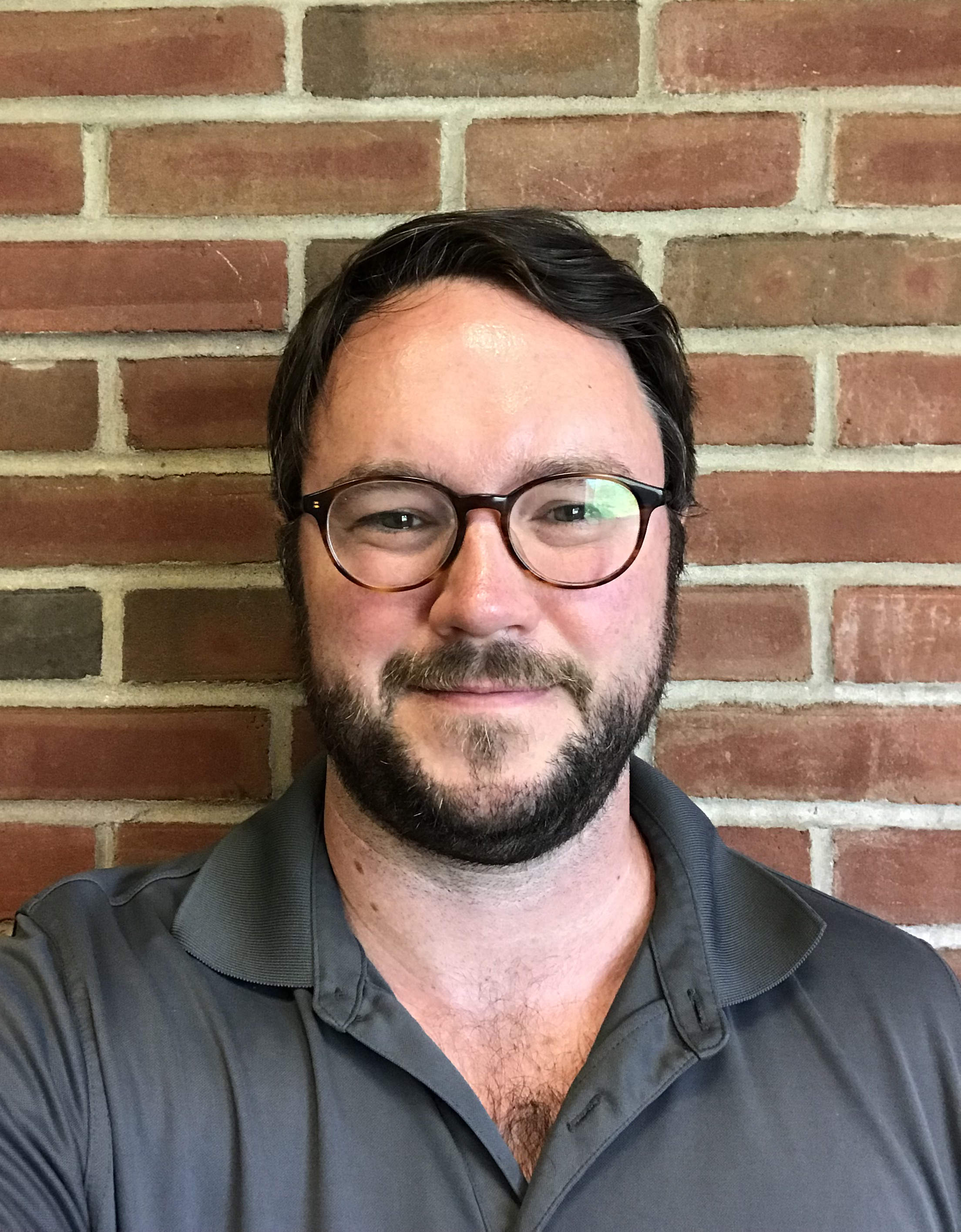 |
Brian DoldBrian Dold is the Director of Planning and Advocacy with the Buffalo Olmsted Parks Conservancy, a not-for-profit, membership-based organization, responsible for the maintenance and operations of Buffalo’s beloved Olmsted Park and Parkway System. Mr. Dold has been working with the Buffalo Olmsted Parks Conservancy for over fifteen years. During this time he played a key role in developing the award winning Buffalo Olmsted Parks System: Plan for the 21st Century, published in 2008. Since 2008, leading the effort to execute the 21st Century Plan, Brian has assisted the BOPC in securing over $8.5 million in capital project fund through various grant awards. As part of his role in directing parks advocacy, Brian is Chair of the Scajaquada Corridor Coalition whose mission is to unite Buffalo communities north, south, east and west in advocating for the removal of the NYS Route #198, which lacerated Delaware Park and shredded the connections within our community. The SCC believes that a comprehensive, community-inspired 21st century design alternative to this 20th century highway will restore our historic parks and parkway system, connect our neighborhoods, create complete safe streets and enhance the economic vitality of the City of Buffalo. A Buffalo native, Brian Dold earned his Bachelors of Science in Landscape Architect from Cornell University in 2003. In 2009 he attended a two week intensive seminar at the Historic Landscape Institute at the University of Virginia. In 2015 he completed the Not for Profit Management Development Program of the Harvard Business School Alumni Club. Brian has served on the Board of the Western New York Environmental Alliance and as Chair of the Parks and Recreation Working Group 2012-2018. |
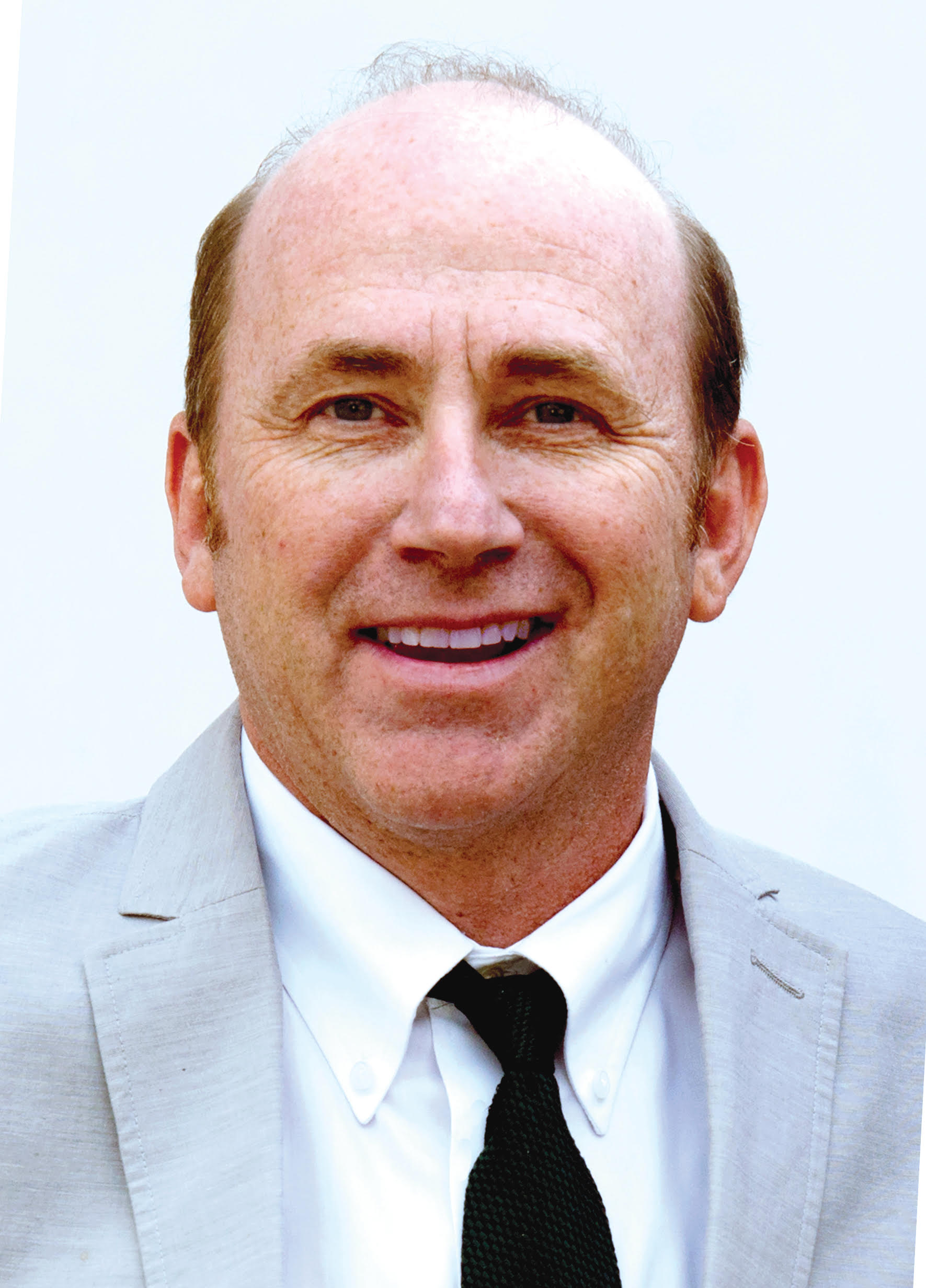 |
Brad EvansBrad Evans is best known for creating Denver FUGLY, a Facebook group that’s swelled to more than 9,000 members since it’s launch 2015. This group’s start was a gut response to Denver’s growing trend of poorly planned, designed and constructed projects in the inner-core neighborhood of this Rocky Mountain city. Since its launch, DenverFUGLY has become the go-to source for developers, builders, no-growthers, denizens of design and armchair QBs - all engaged in a conversation about Denver’s built environment. Evans is also considered to be Denver’s de-facto Bicycle Czar, with the advent of the Denver Cruiser Ride in 2005. Each Wednesday night from May-September, 1000s of costumed riders descend on Downtown Denver for a night of revelry and fun on bikes. Launched in 2005 with 13 riders, since then, this sometimes messy, but fun weekly happening has (mostly) been embraced by city and police officials, and has become nationally recognized as one of the largest rides of its kind in the US. In 2015 Evans created the Ditch The Ditch campaign, an effort to activate and rally the community to put a stop the Central I-70 project that was placed on CNU's "Freeways without Futures" list. The project proposes a 2 mile, $2bn stretch of road in what’s considered “the most polluted ZIP code in the US.” |
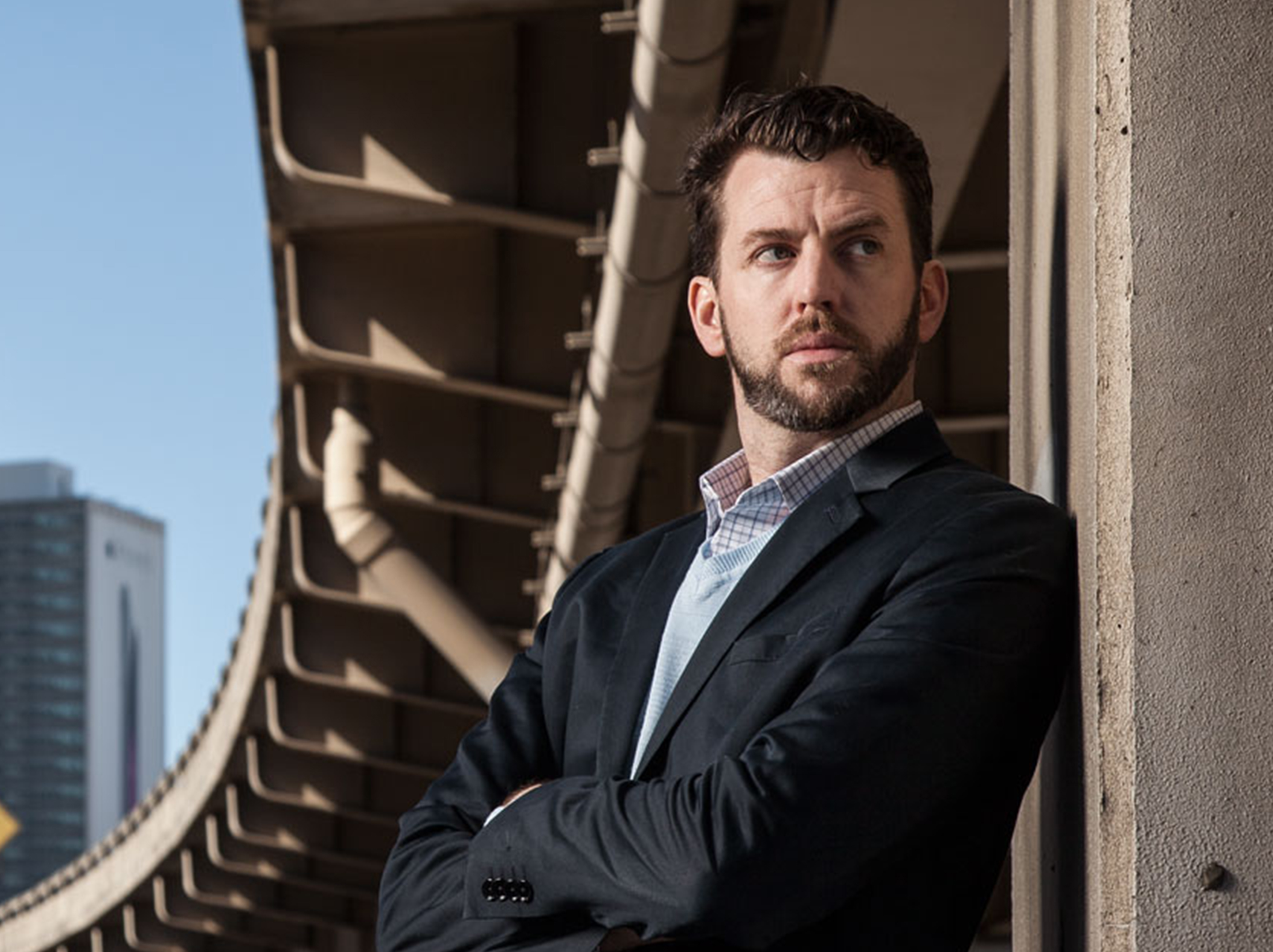 |
Patrick KennedyPatrick Kennedy is a founding partner in the Dallas-based urban design firm, Space Between Design Studio. He is presently on the board of directors for the Dallas Area Rapid Transit (DART) system and former president of the North Texas Chapter of the Congress for the New Urbanism (CNU-NTX). With more than 15 years of experience tackling complex urban challenges at local, national, and international scale, his focus is on the interrelationship between movement infrastructure network design and real estate market dynamics in order to deliver successful, lovable, sustainable places. He is also co-founder of A New Dallas (www.anewdallas.com), a non-profit promoting transportation alternatives and neighborhood revitalization, as well as the Coalition for A New Dallas, a Political Action Committee dedicated to electing, educating, and empowering local leaders in support of revitalizing Dallas neighborhoods. He has awards from NCTCOG, Greater Dallas Planning Council, APA, AIA, AIGA, and ASLA. |
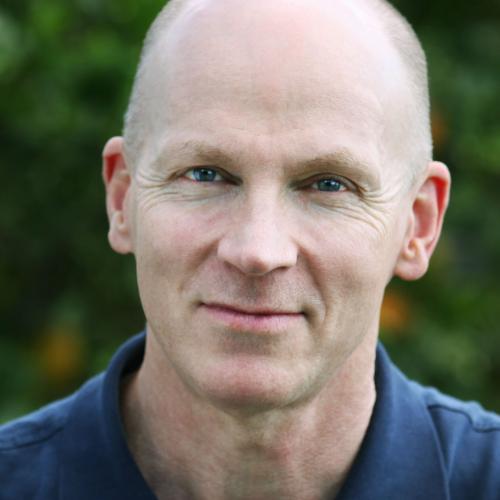 |
Ian LockwoodIan Lockwood PE, is a Livable Transportation Engineer with the Toole Design Group. Ian has Bachelor and Master Degrees in Civil Engineering and is a Harvard University Loeb Fellow. In the 1990s, Ian was the City Transportation Planner for West Palm Beach where he led some of the first road diets and arterial calming projects in the US. In 1997, he was awarded the Institute of Transportation Engineers’ (ITE’s) Past Presidents’ Award for his project that preserved Virginia Route 50 as a 2-lane rural road instead of the converting it into major freeway. In 2005, Ian helped define the term “complete streets,” an idea about inclusive design which has spread across North America. In 2009, his project, to replace the major highway project along the New Jersey Route 31 corridor with a Smart Growth Project, won ITE’s Project of the Year. Ian is a proponent of the “Path-as-Place” doctrine which informs all his work, ranging from the design of Main Streets, to downtown and suburban center revitalization initiatives, to highway removal projects, all with the goal of increasing cities’ social, environmental, and economic health. Most recently, Ian led the development of new language regarding highway removals for the FHWA. |
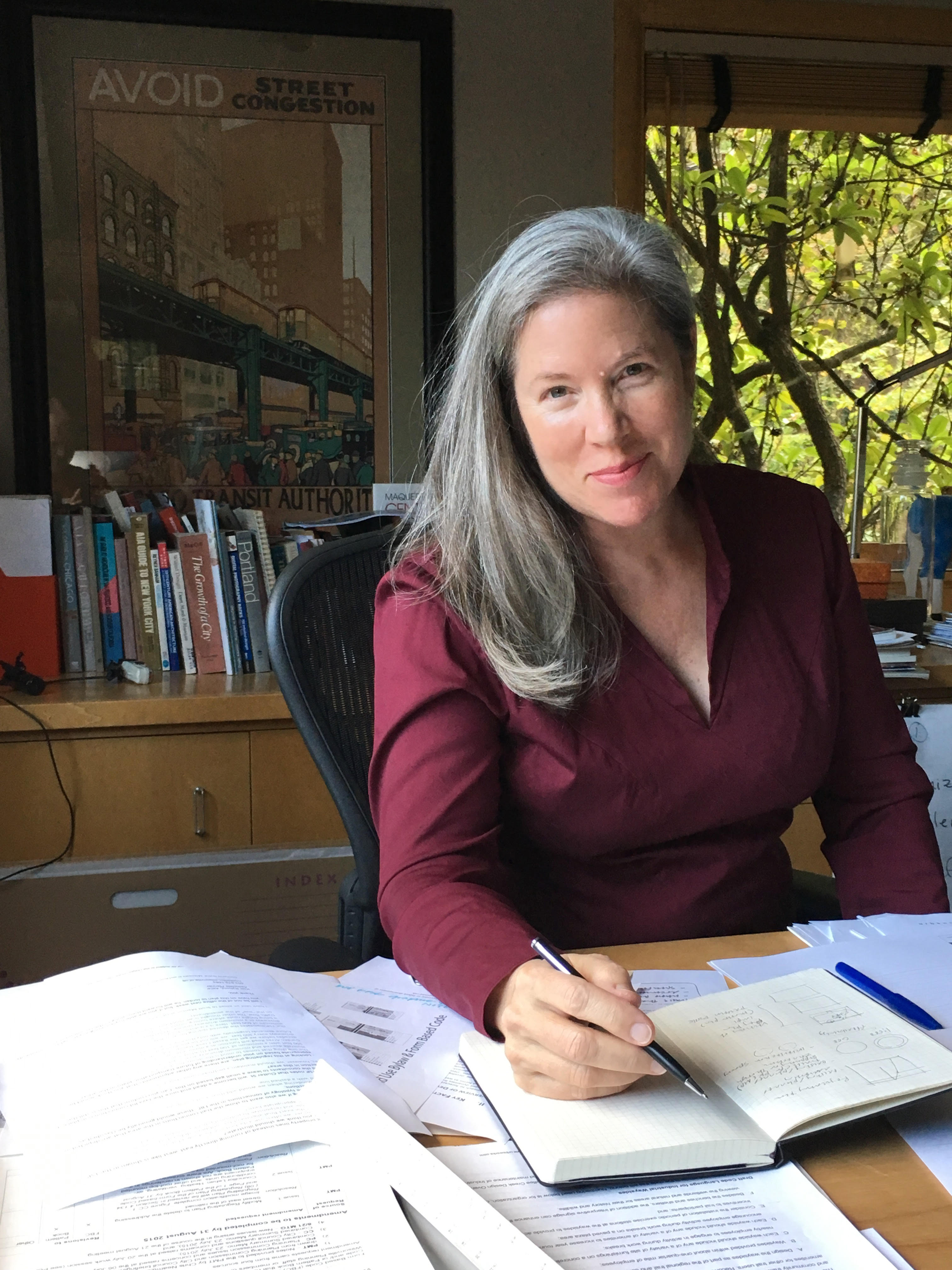 |
Marcy McInellyMarcy is an internationally recognized architect and urban designer with 30 years of project experience in Canada, the United States, and the Middle East. In 1995 she founded Urbsworks, and redirected her expertise to the often-neglected space between buildings. Over time she has sharpened her focus on a multi-disciplinary, collaborative approach to urban design and placemaking, with a particular emphasis on smart, safe transportation and innovative codes for the benefit of communities. In 2004, Marcy was appointed to co-chair the CNU Project for Transportation Reform (CNU PTR). This is the group that published the “CNU Sustainable Street Network Principles,” and initiated the joint CNU and ITE (Institute of Transportation Engineers) Recommended Practice, “Designing Walkable Urban Thoroughfares: A Context Sensitive Approach,” published in 2010. Under Marcy’s leadership, the CNU PTR has successfully advanced the idea that urban street space deserves more design attention and a more democratic, civic-minded vision. In most cities as much as 40% of land area is dedicated to streets and open spaces, and while it is collectively “owned” by the public it is not used in very democratic ways. The majority of public realm is used by people in single occupancy vehicles for example. For the last decade and a half, the CNU PTR has promoted the idea of reclaiming street space for people, for reintegrating the concept of beauty in street design, and bringing the “public” back into the public realm. Other movements and individuals have joined with CNU, and today, because of all of these efforts together, the idea of rethinking our streets has gained national prominence and mainstream attention. |
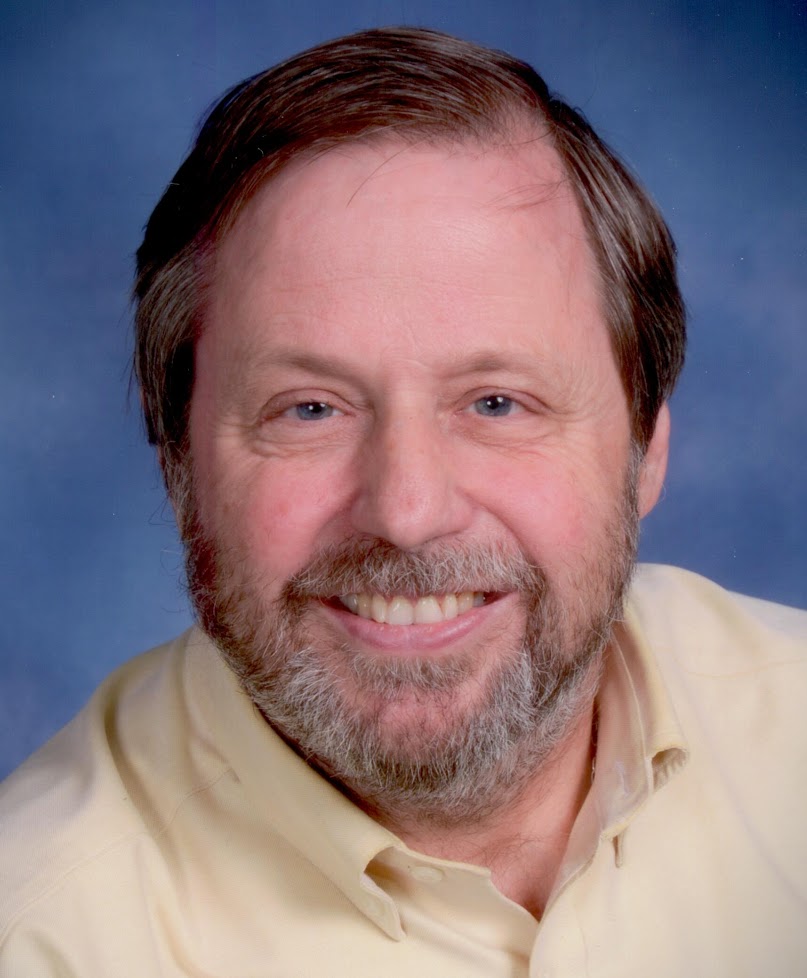 |
Norm MarshallNorm Marshall, President of Smart Mobility Inc., specializes in analyzing the relationships between the built environment and travel behavior and doing planning that coordinates multi-modal transportation with land use and community needs. He has completed projects in over 30 states for state departments of transportation, Metropolitan Planning Organizations, cities, and public interest groups. Mr. Marshall’s current primary focus is documenting how conventional transportation modeling overestimates the benefits of road capacity, and demonstrating how better modeling confirms the feasibility of roadway downsizing. Mr. Marshall graduated from Worcester Polytechnic Institute in 1977 with a B.S. in Mathematics and from Dartmouth College in 1982 with a M.S. in Engineering Sciences. He has many peer-reviewed publications and presentations. Mr. Marshall is co-leader of the Congress for the New Urbanism Project for Transportation Modeling Reform. |
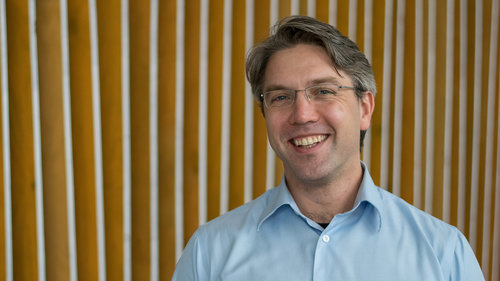 |
Chris MeyerChris started with Hub+Weber at the beginning of 2016 after working for the Greater Cincinnati Energy Alliance. He attended Cal Poly where he graduated with a Master’s degree in Architecture, specializing in Historic Preservation in 2008. Before coming back to the Greater Cincinnati Area, Chris worked at Carey & Co, a historic preservation and architecture firm in San Francisco. At Carey & Co, Chris worked on a renovation of the California Library and Courts building that won historic preservation awards and LEED Silver. At Hub+Weber, Chris’ responsibilities include design, construction documents, and construction administration. As a LEED Accredited Professional, Chris directs the sustainable design efforts at the office, helping clients to understand both the impact of sustainable design and the process through which to obtain various certifications |
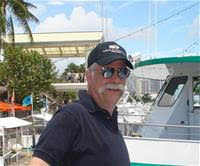 |
Rock MillerRock Miller is a self-employed professional traffic engineer based in Southern California with over 40 years of experience. He was the International President of the Institute of Transportation Engineers (ITE) in 2012. A graduate of UC Davis, he specializes in traffic safety, liability, and in enhancement of facilities for walking and bicycling. He has designed award winning innovative bicycle facilities throughout the US and Canada. He represents the League of American Bicyclists on the US National Committee on Uniform Traffic Control Devices, where he is helping to advise the US Government on Federal standards for bicycling and walking. Rock is currently working with the California State Legislature on reform of speed limit laws and will be presenting on speed zoning at the Pro Walk Pro Bike Pro Place conference on Tuesday afternoon. Rock prepared traffic forecasting models early in his career. He understands how they may be both beneficial and misleading, especially in an era of changing public values. |
 |
John NorquistJohn Norquist’s work promoting New Urbanism as an alternative and antidote to sprawl's social and environmental problems draws on his experience as big-city mayor and his service as President and CEO of the Congress for the New Urbanism from 2004 to 2014. Under his leadership as Mayor of Milwaukee from 1988-2004, the city experienced a revision of the city’s zoning code and reoriented development around walk-able streets and public amenities such as the 3.1 mile river-walk . He led the successful fight to remove the Park East Freeway in Milwaukee and replace it with a boulevard and tax base supporting development. Norquist is the author of The Wealth of Cities and has taught courses in urban planning and development at the University of Chicago, Marquette University, DePaul University and the University of Wisconsin-Milwaukee’s School of Architecture and Urban Planning. Most recently he served for a year as the John M. DeGrove Eminent Scholar at Florida Atlantic University. Norquist writes articles, lectures and is working on a book Federal programs that help and hurt cities. He and his wife Susan Mudd live in Chicago with their 16 year old daughter Katherine. |
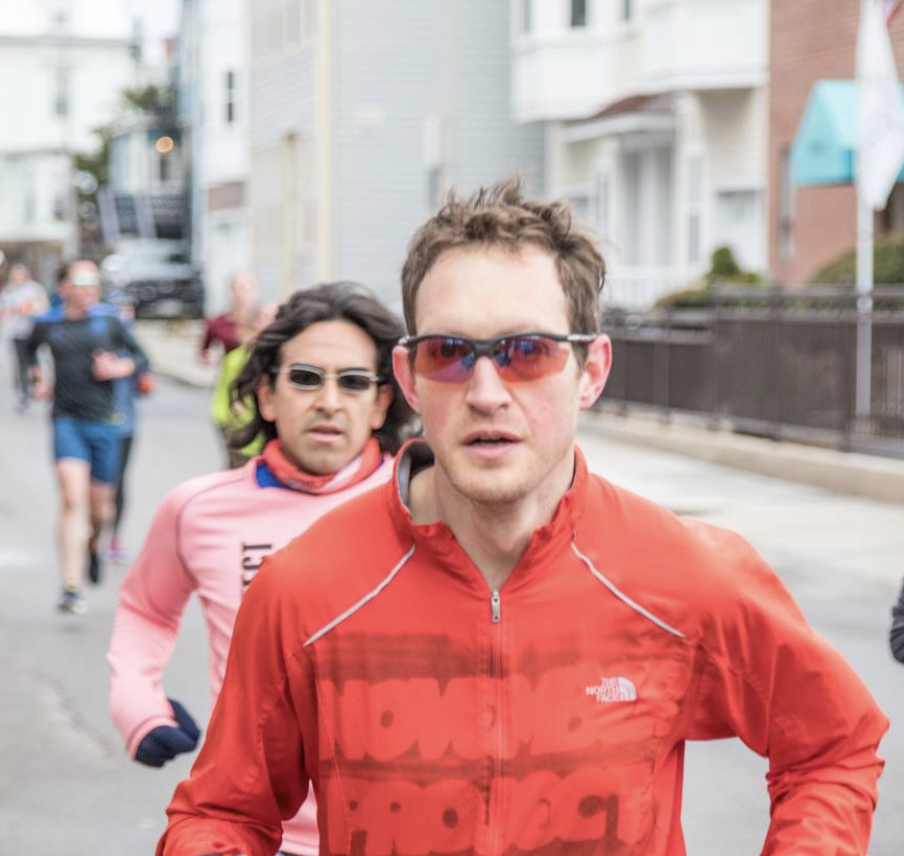 |
Ari OfsevitAri Ofsevit is a currently student in the Masters of City Planning and Masters of Science in Transportation at MIT in the Department of Urban Studies and Planning and Civil Engineering and will graduate next spring. While there, he has researched rail congestion and routing options at the Chicago Transit Authority. In the past, he has worked in Transportation Demand Management, transit planning, car sharing, and has even managed a backcountry lodging facilities on the side of Mount Washington in New Hampshire. He has been named "advocate of the year" for his work with the LivableStreets Alliance in Boston, where he is the project lead for the Allston/I-90 highway replacement project (and the proponent of one of the at-grade alternatives) and has worked to win the design of a bus lane on a separate bridge in design amongst other projects. He is a board member of TransitMatters, a new organization working to improve transit access and planning in the Boston area. He has run several Boston Marathons, ultramarathons and is a member of the US Ski Orienteering team. |
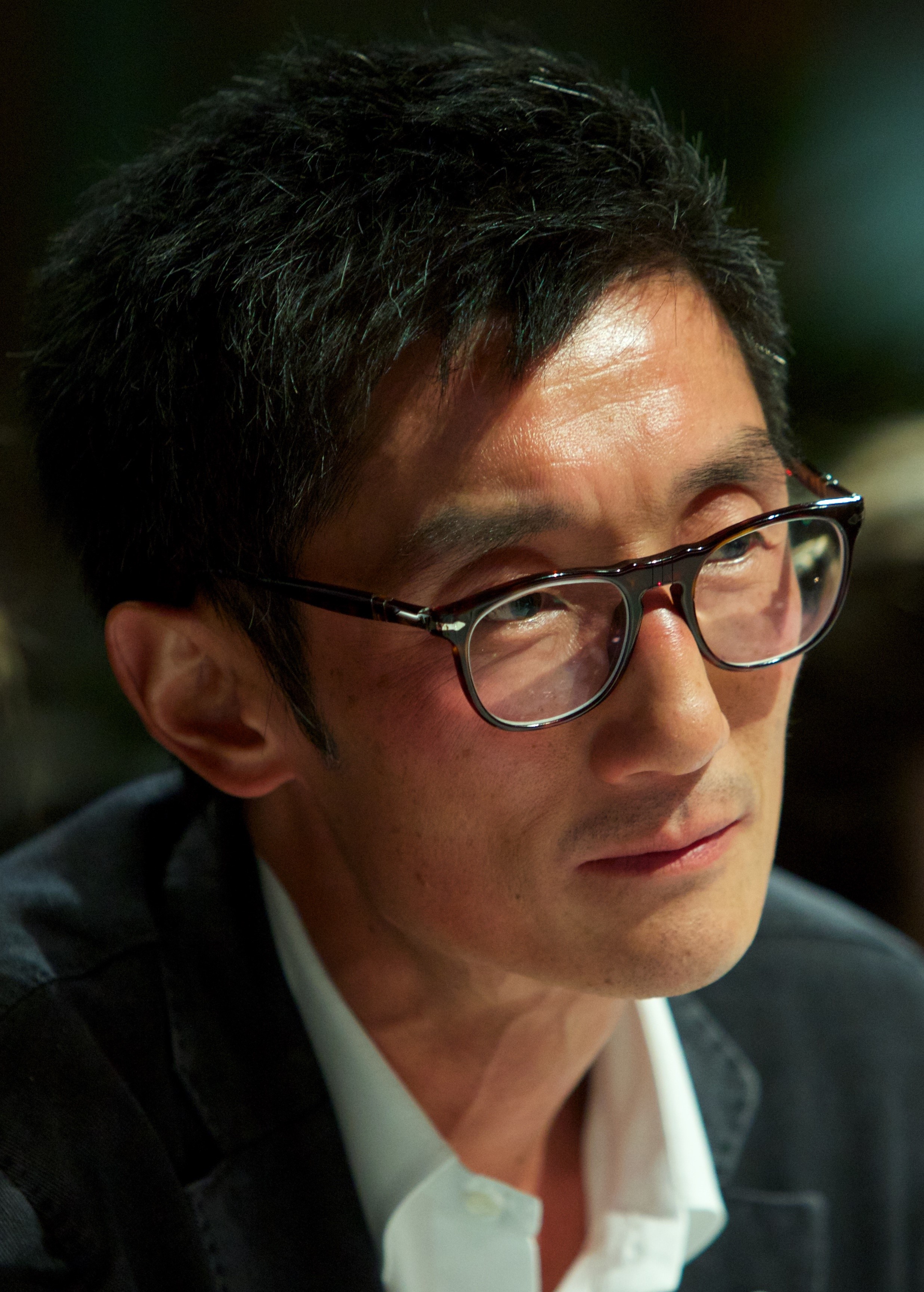 |
Peter ParkPeter Park, Director/Owner of Peter J. Park, LLC provides specialized advisory services that draw upon his unique insights gained while serving as planning director of two large US cities and his more than 25 years experience in professional practice and academia. He has proven experience in bringing visionary planning to reality and unique expertise in the areas of collaborative community planning, replacing in-city highways with enriched street networks, transit-oriented development, and zoning code reform. Peter was the 2012 Lincoln Loeb Fellow at the Harvard Graduate of Design where he studied in-city highway removals and presented “Planning for the Post-Freeway American City” at the Lincoln Institute of Land Policy. He authored “Re-thinking Highways in American Cities: New Opportunities for Leadership” with the support of CNU and the Ford Foundation and prepared the forward to “The Life and Death of Urban Highways” published by the Institute for Transportation and Development (ITDP). Peter is an Associate Professor Adjunct of Urban Design at the University of Colorado-Denver and has served as a Visiting Design Critic in Urban Planning and Design at the Harvard Graduate School of Design and coordinator of the Joint Master of Architecture/Master of Urban Planning program at the University of Wisconsin-Milwaukee. |
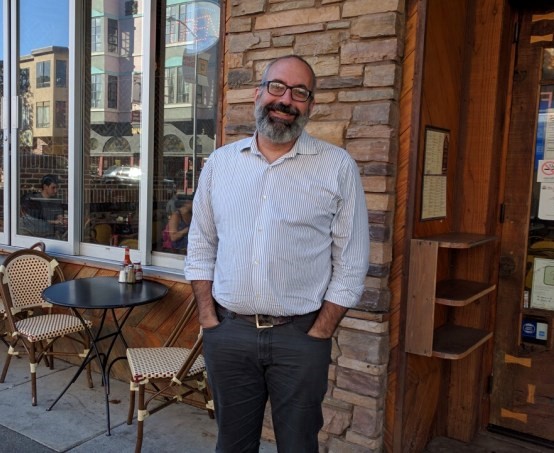 |
Tom RadulovichTom Radulovich is executive director of Livable City, a San Francisco nonprofit dedicated to making San Francisco more livable, equitable, healthy and sustainable through advocacy, assistance to communities, and open streets programs. In the 1990s Tom served on San Francisco's citizens’ task force on the Central Freeway. He worked on three local ballot measures to remove the northern end of the freeway and replace it with a surface-level multi-way boulevard, and to reuse the former freeway land for new housing and public places. Tom also served as an elected member of the Bay Area Rapid Transit (BART) Board of Directors for twenty years, including two terms as president. |
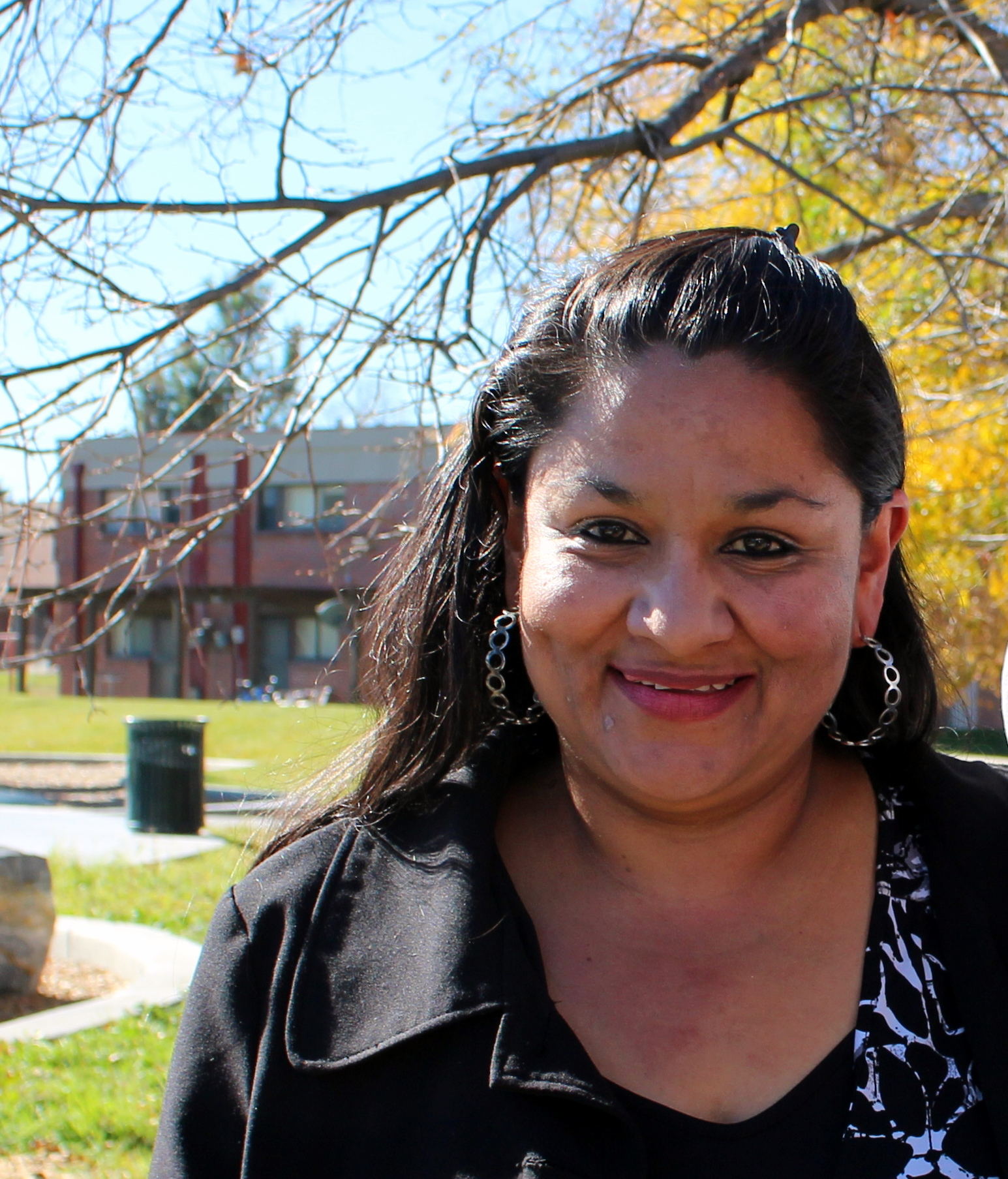 |
Lisa SaenzLisa Saenz is the President of the Sun Valley Local Resident Council. She previously served two terms as Treasure for the Local Resident Council and was recognized as 2015-2016 Outstanding Treasurer by the Resident Council Board. Lisa serves as Vice President of the Sun Valley Community Coalition, the registered neighborhood organization representing Sun Valley, and is active member of the Executive Committee. Lisa is employed by the Denver Housing Authority (DHA) as a Community Connecter with the People Team of the DHA Sun Valley Choice Neighborhoods Initiative. Lisa is an active member of the Choice Neighborhoods Initiative (CNI) and the Sun Valley Community Advisory Committee (SVCAC). She participated in the SVCAC Focus Groups in the areas of Housing, Jobs, and Education. Lisa attended and participated in the 2016 CNI Planning & Implementation Grant convened in Washington, DC. She holds numerous position on various community advisory boards, including but not limited to: the Denver Police Department District 1 2016 Byrne Criminal Justice Innovation Stakeholder Committee, the Denver Mile High Stadium District Master Plan Steering Committee, and the West Denver Renaissance Collaborative. Lisa also makes time to volunteer at Sun Valley Kitchen LLC, Sun Valley Resident Crime and Safety committee and is co-chair of Sun Valley Mental Health Support Group, in collaboration with Servicios de la Raza. Lisa is a single mother with two teenage children; a daughter enrolled in college following her 2018 graduation from Denver North High School and a son in middle school. The family volunteers for the Sun Valley annual block party, bicycle rides with the Denver Police Department, community art projects and other Sun Valley activities. |
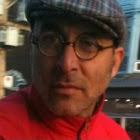 |
Dan ShahDan Shah is an experienced community and economic development leader who offers expertise in commercial corridor revitalization, equitable placemaking, pedestrian and bicycle infrastructure, real estate development, and sustainability best practices. He brings extensive experience working and reflecting on strategies to achieve social change through non-profit and for-profit enterprises, as a legal advisor and executive director. This includes ten years' experience as a social enterprise director at a CDC in New Jersey and with Business Improvement Districts in Denver. His private and public sector legal experience includes twelve years of legal counsel to dozens of small business and non-profit clients working toward social change, and six years running a community development law clinic at Temple Law School. |
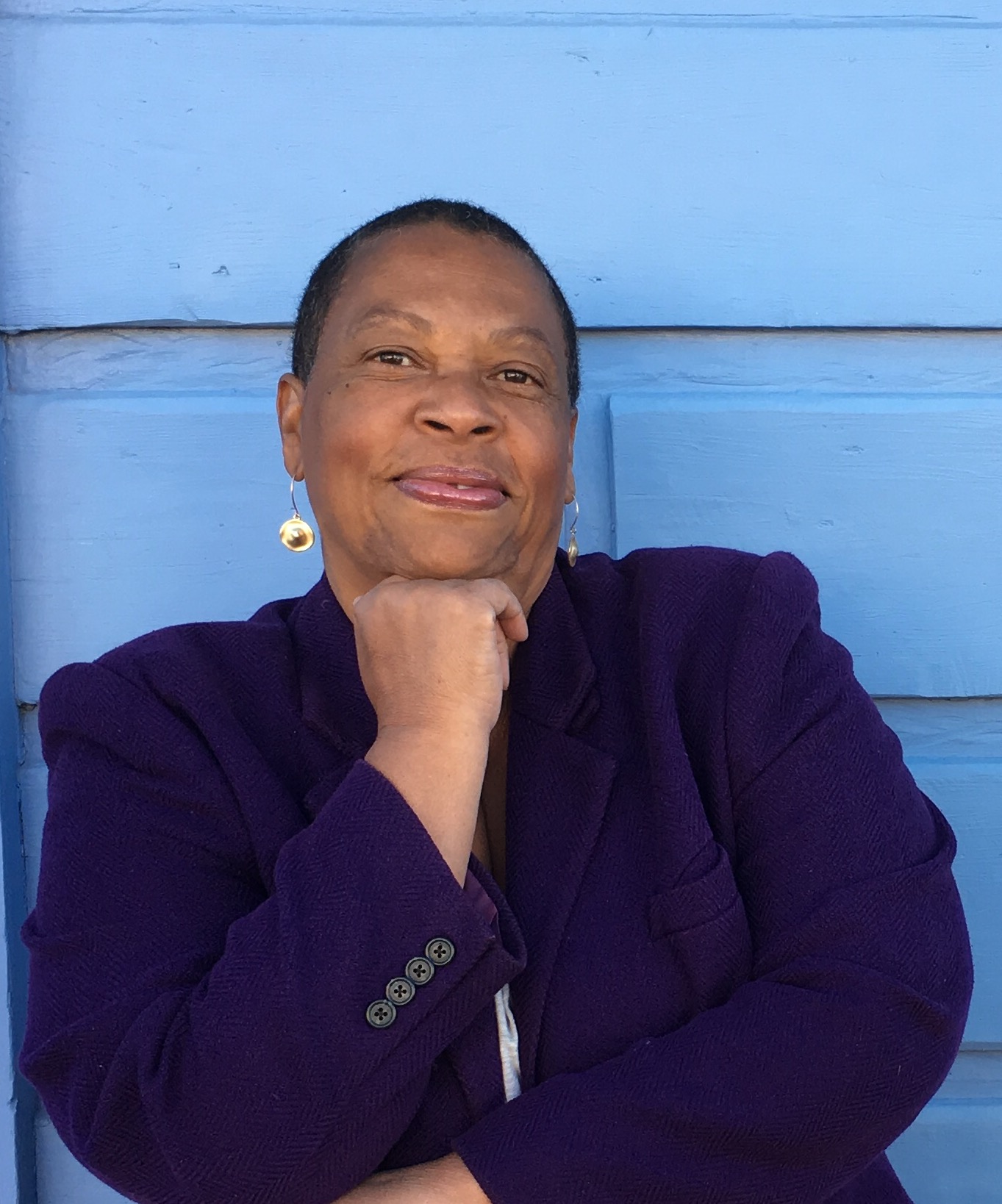 |
Amy StellyAmy Stelly is an artist, designer, and planner. Her body of work includes architectural and urban design, along with abstract painting, drawing, mask-making, photography, mixed-media and three-dimensional construction. As a designer and planner, her scope of work includes building and open space, design, historic restoration, downtown and neighborhood revitalization, environmental planning, municipal zoning, incentives, entitlements, site planning, streetscapes and gardens. Amy has studied and worked with acclaimed masters, including Andres Duany, Elizabeth Plater-Zyberk and the late Charles Moore. She is a native of New Orleans and lives in Treme. She’s an advocate for water safety, water management and public accountability. Amy has written about the value of community engagement and lectured on urban gardens and the history of planning and open space in Treme. |
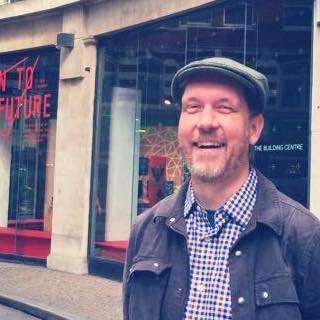 |
Brian StokleBrian Stokle is an urbanist with experience in transportation planning and park planning. He is someone who generally seeks out complicated multi-jurisdictional challenges. A California native, Brian’s urban planning aspirations sparked while living in Paris, France. He earned a masters in Urban Planning at Columbia University and has previously worked for Nelson\Nygaard Consulting. Brian currently works as a planner at San Francisco Recreation and Parks creating new bike paths, safer roads, and better playgrounds, plazas and parks. Brian has worked extensively as a transportation advocate including writing a white paper on the 2nd Transbay Rail Crossing for think tank SPUR, as well as calling for red bus lanes and rail extensions in San Francisco. Much of his thoughts and analysis can be found on his blog, UrbanLifeSigns.com. As a founding member of ConnectOAKLAND, Brian’s has worked for over three years analyzing traffic volumes, meeting local and regional stakeholders, presenting to groups, and attending public meetings, all in the effort to move this transformative project forward. |
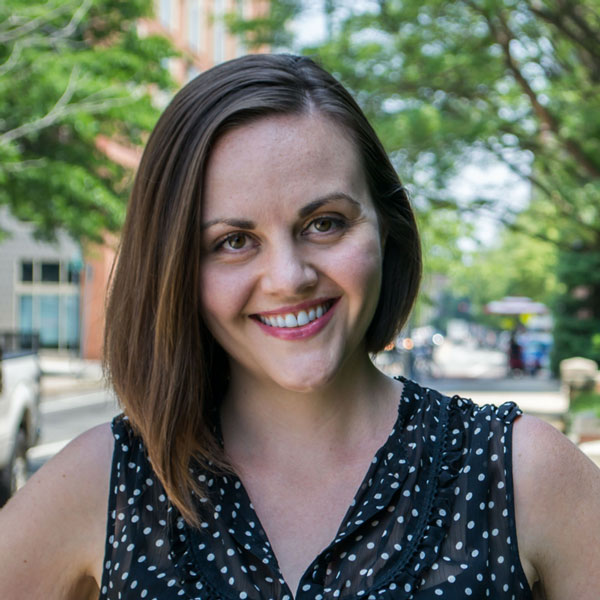 |
Stacy ThompsonStacy is the Executive Director of LivableStreets, overseeing all programs including Vision Zero, Better Buses, and the Emerald Network, and ensuring overall programmatic and operational excellence for the organization. A relentless optimist, Stacy is undaunted by the many challenges facing Metro Boston today, including increasing access to jobs and affordable housing, improving safety and public health outcomes, and building climate resiliency. Stacy believes that improving our streets isn’t simply a transportation issue, but one of justice, equity, and opportunity. Previously, Stacy served as the Director of Events & Sponsorship at Ceres, a sustainability nonprofit organization, where she developed the strategic focus, content, and communications for major events. She also worked for the Office for Peace and Justice at the Archdiocese of Chicago where she collaborated with community partners to organize educational forums and supported a broad array of social justice initiatives. She has a Master of Arts in Social Justice from Loyola University and a Bachelor of Arts in Religious Education from Saint Vincent College. |
A limited number of rooms at a special conference rate are available at the Sheraton New Orleans Hotel, 500 Canal Street, New Orleans, LA. The rate is $179 USD for a single/double + applicable taxes. The hotel is accessible by public transportation and is located in a walkable and bicycle friendly area. Rooms may be reserved online or by calling the hotel by/before August 25, 2018.
To Reserve
- Online
- By Phone: 800 663 9255 North America
- By Phone: 800 325 3535 World Wide
General Registration
Registration is $150 USD for CNU members and $175 USD for non-members. Registration includes both the program on Sunday, September 16th that features highway transformation as well as access to the Project for Transportation Reform’s leadership meetings, which will take place on the morning of Monday, September 17th.
Please note that registration for the Transportation Summit is separate from the registration for Walk Bike Places.
Tours
Experience firsthand the Claiborne Corridor and Tremé neighborhood in New Orleans, a city neighborhood split by the six-lane, elevated Claiborne Expressway (I-10). Led by Amy Stelly, urban planner, designer, and campaign leader, and David Dixon, urban planner and designer, this tour will begin on Canal Street to first consider successful models for boulevards in New Orleans before looking at the potential to redevelop the elevated expressway back into the vibrant avenue it once was. Throughout the tour, we will tackle the very real issues of gentrification and displacement that have spurred neighborhood opposition and discuss how to ensure that the economic value unlocked by taking down an elevated expressway is channeled to serve the members of the current community.
CNU is not charging a fee for this tour, but requests attendees bring a $5-10 cash donation for the tour leaders to go toward the Claiborne Expressway Campaign. If you would like to join the tour, please register through the link below. Registration for each tour is limited to 25 attendees.
CNU's 2018 Transportation Summit focuses on the revitalization of urban neighborhoods disrupted by limited-access highways and the local campaigns to transform these disruptive arteries into surface boulevards. In particular, we are seeking input from the organizers of these campaigns as we bring together leading experts and practitioners in transportation from around the country.
This year's Transportation Summit will convene September 16-17, 2018 at the Preservation Resource Center in New Orleans, LA. During the first day of the Summit, participants will hear from highway transportation campaign leaders as well as national experts engaged in a number of current teardown projects. The second day of the summit is more internally focused, as CNU members will present and discuss issues critical to CNU's Project for Transportation Reform. All are welcome to attend both days, but registration is limited to 80 people.
The summit will take place at the same time as Walk Bike Places, organized by Project for Public Spaces (PPS).
This Transportation Summit provides an opportunity to share success stories, collectively tackle hurdles, and plan strategically to increase the conversion rate of highways to boulevards in cities and towns across America. Check back here for additional information as the Transportation Summit approaches. Please do not hesitate to send questions to Ben Crowther at bcrowther@cnu.org.
Photo: Chattanooga Riverfront Parkway replaced an elevated highway that was a barrier to the waterfront.
